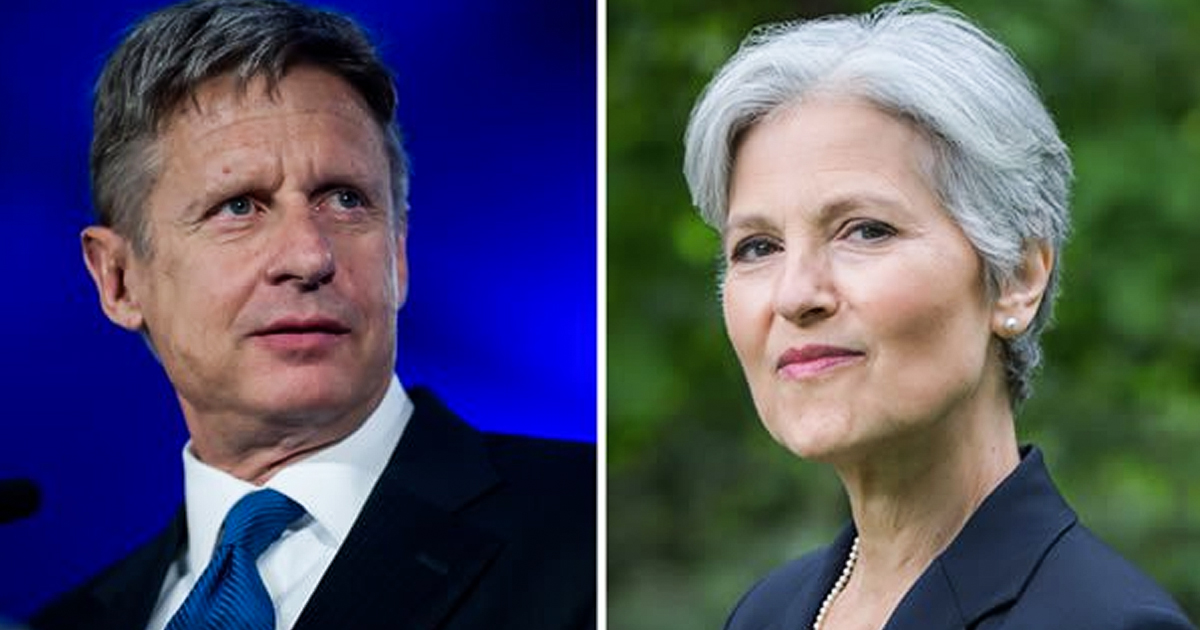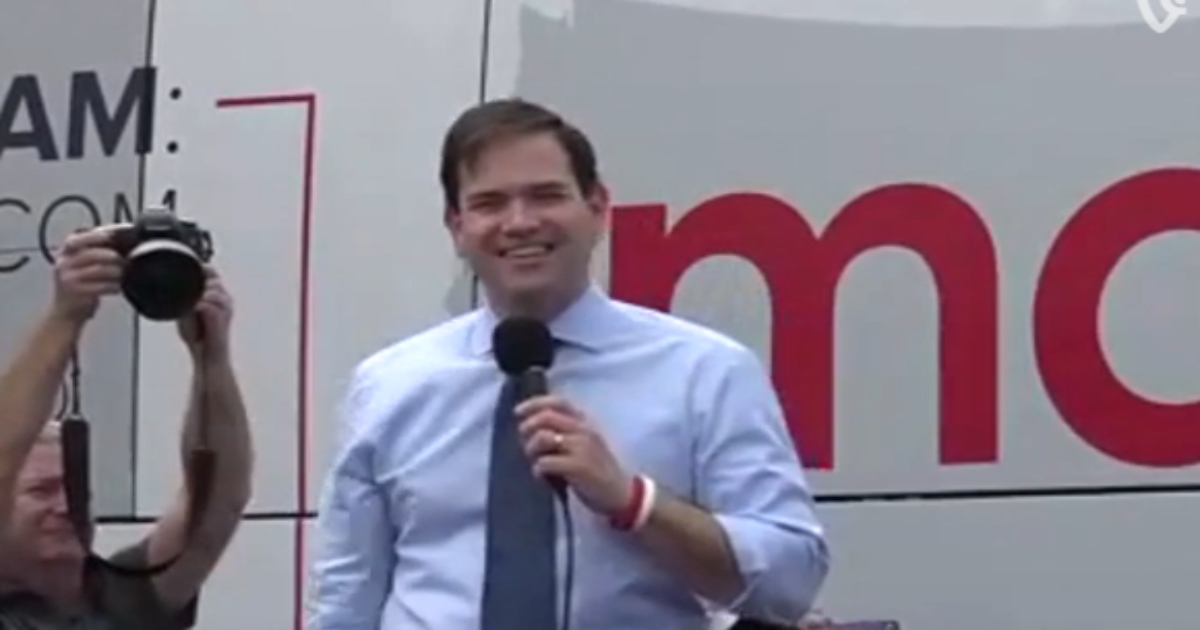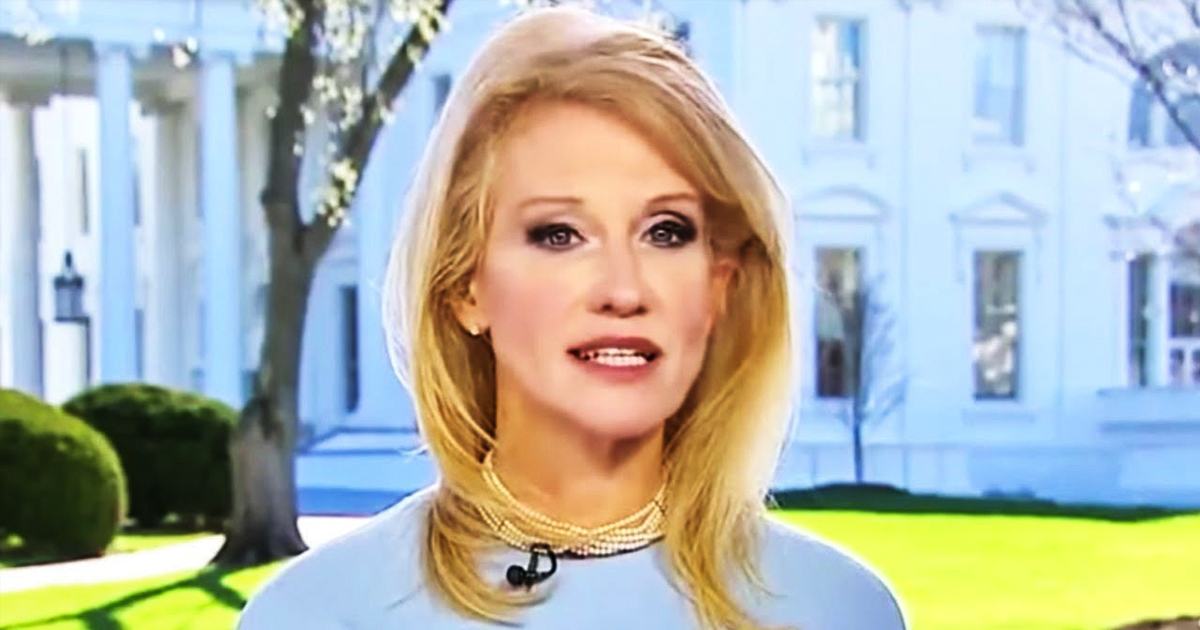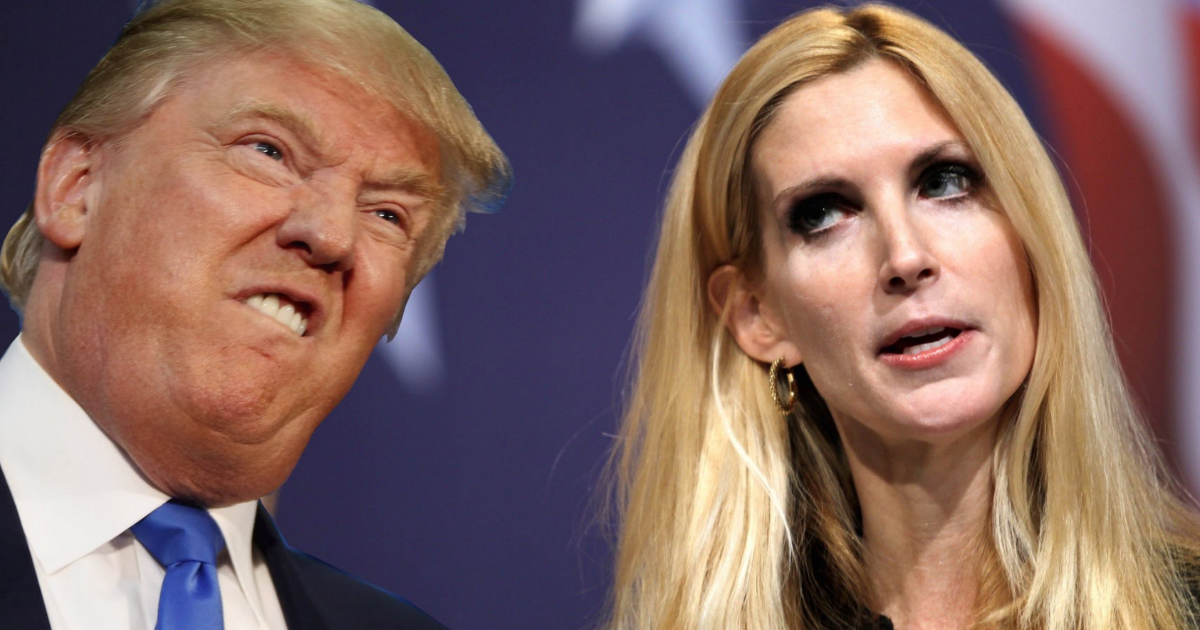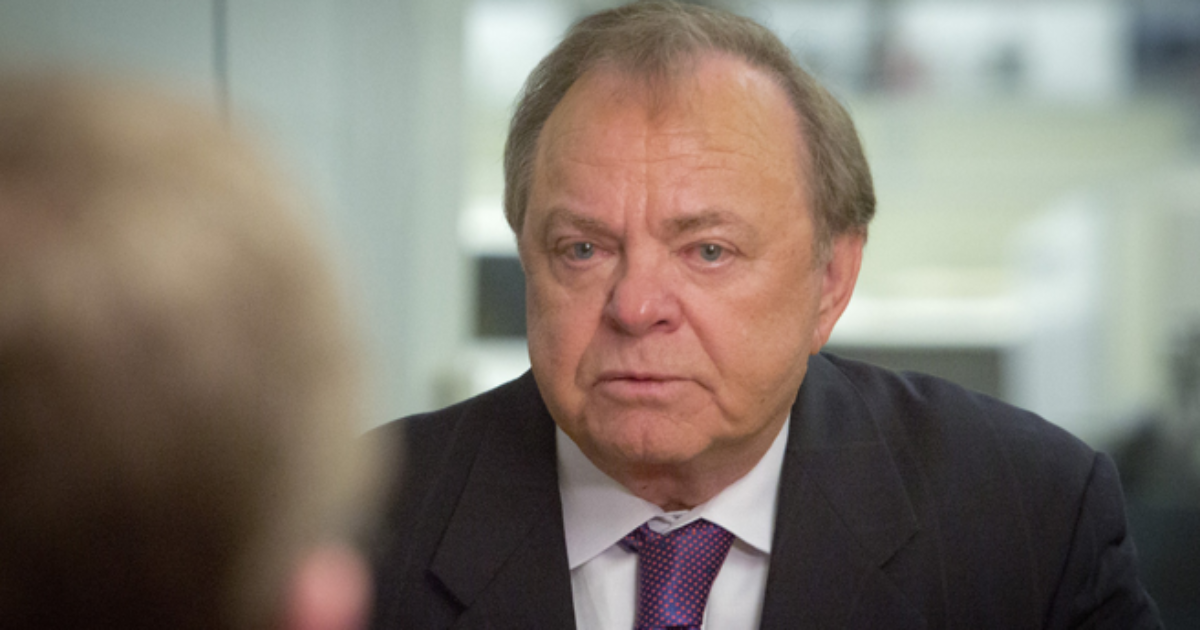According to the latest poll results from this week, national interest and support for third-party candidates is waning, a change which is only working to make Hillary Clinton’s lead more comfortable and solid.
Libertarian candidate Gary Johnson who once enjoyed polling numbers as high as 11 percent is now sitting closer to 7 percent, a sizable drop for the man who managed to get his name on the ballot in all 50 states. After a slew of political gaffes in recent weeks, it’s really no surprise.
Green Party’s Jill Stein has also failed to climb in the polls, still sitting at around 2-3 percent in most national and state polls, the same place she was in the past several weeks. Though Stein tried hard to get her name out there – and was even name-dropped on Saturday Night Live last weekend – it just hasn’t been enough to make her appear as a serious candidate.
Don’t be mistaken – the number of people who are committed to voting third-party haven’t changed that much, but combined support for Clinton and Trump are now at an all-time high at a bit over 84 percent. This is a small but meaningful increase from where it was back in June and July – more like 78 to 80 percent.
This is not an unusual trend. According to Five Thirty Eight, this fade in third-party support is a common theme in most elections as voters begin to make up their mind and fall into line with one party or another.
You can’t discount a concerted effort by both campaigns to sway voters from third-party support as well. A Super PAC committed against Trump released a video just this week aimed at former Bernie supporters who now say they will vote Johnson. The debate system is built to resist third-party candidates as well, meaning that as the American public becomes more acquainted with Clinton and Trump via the three scheduled debates, Johnson and Stein fade further into the distance.
Those who remain committed to a third-party candidate should not feel discouraged, however, as the support for third parties in this election is at near-historic levels. This election remains an unusual one, with America’s dissatisfaction with the two-party system more clear than ever.

